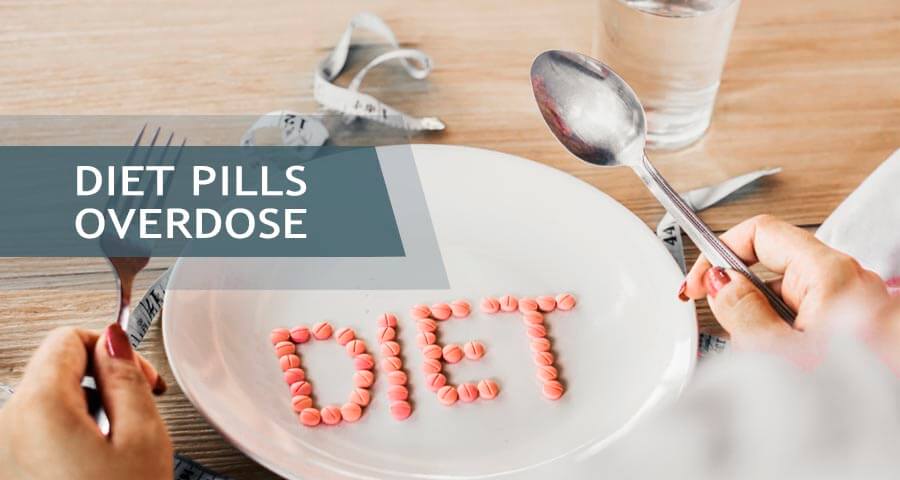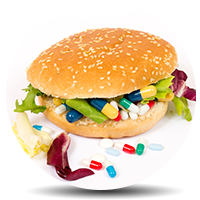
The number of overweight or obese people is greater than ever before. This problem has not passed unnoticed by pharmaceutical companies that make multi-billion dollar industries by producing diet pills. Today, there are hundreds of different types of diet pills available, which many see as an easy and fast way to melt away the extra pounds.
Table Of Contents:
But, all is not well in the land of easy solutions. Diet pills can cause multiple side-effects which include physical and psychical addiction and overdose.
Diet Pills Mechanism Of Action
Manufacturers produce diet pills under many labels and trademarks. They are available as prescription drugs, over-the-counter drugs, and herbal drugs. No matter their formare sold, pharmaceutical companies compete and think of new ways to lure in more consumers. Diet pills work by:
- suppressing appetite
- elevating one’s metabolic rate
- blocking the body’s ability to absorb fat
- creating a feeling of satiety because they expand in the stomach
- increasing waste or fluid elimination from the body
Diet Pills Side Effects
If not taken correctly, diet pills can cause the following side-effects:
- Heart rate increase (tachycardia)
- High blood pressure
- Constipation
- Diarrhea
- Sleeping problems
- Kidney damage
- Stomach pain
- Liver damage – some diet pill ingredients like Alli or Xenical can cause a particular liver injury manifested by itching, yellow skin or eyes, and
- Rectal bleeding
- Overdose – diet pill overdose can happen and can be very dangerous
Diet Pills Overdose Amount
It is hard to tell how many pills it takes for someone to overdose. It depends on the drug type and the user’s weight, health, and tolerance. However, it is common for people who overdosed to experience:
- Tremors
- Convulsions
- Hallucinations
- Shortness of Breath
- Renal failure
- Heart attack
Risk Groups for Diet Pills Overdose
Obese and overweight people are predominantly those who abuse diet pills, but so are the people who do not have actual weight problems (they only think they do). No matter the age group or gender, people with eating disorders are more likely to take more pills than necessary to speed up the weight loss process.
Signs and Symptoms That Can Lead to Diet Pills Overdose
If there are any reason to assume someone is abusing diet pills, look out for the next few signs and symptoms:

- He/she is taking far more dietary supplements than necessary
- Choosing products that aren’t intended for average weight or underweight people
- Taking prescription pills without any medical control
- Emotional instability
- Thinking of diet pills as a magic cure for their problems
- Obsessing about diet pills and constantly thinking of the ways in obtaining them
- Mixing different diet pills
- Combining diet pills with laxatives or diuretics
- Combining diet pills with illegal drugs such as methamphetamine or cocaine
Can Diet Pills Cause Death?
There are multiple death cases reported due to diet pill overdose. Pulmonary hypertension or cardiac arrest cause fatal consequences. Pulmonary hypertension is a type of high blood pressure that affects the lung arteries. Taking too many diet pills can intensify this symptom and end fatally. Diet pills may also cause heart to stop— after an increased dose of diet pills, the heart suffers enormous pressure and becomes unable to function properly.
If one overdose on diet pills, do not seek advice on forums, but immediately call 9-1-1 or a poison control center. Do not induce vomiting, because sometimes that can only make things worse.
Page Sources
- Hyun-Sic Jo, Sheng-Min Wang, Jung Jin Kim. Recurrent Psychosis after Phentermine Administration in a Young Female: A Case Report. Clin Psychopharmacol Neurosci. 2019 Feb; 17(1): 130–133. https://www.ncbi.nlm.nih.gov/pmc/articles/PMC6361044/
- Daneschvar HL, Aronson MD, Smetana GW. FDA-approved anti-obesity drugs in the United States. Am J Med. 2016. https://www.amjmed.com/article/S0002-9343(16)30197-8/fulltext
- D. A. Cahal. Dangers of certain appetite suppressants. Br Med J. 1969. https://www.ncbi.nlm.nih.gov/pmc/articles/PMC1983182/pdf/brmedj02030-0084b.pdf


 Reviewed by:
Reviewed by:  Written by:
Written by: 

 FindTreatment.gov
FindTreatment.gov